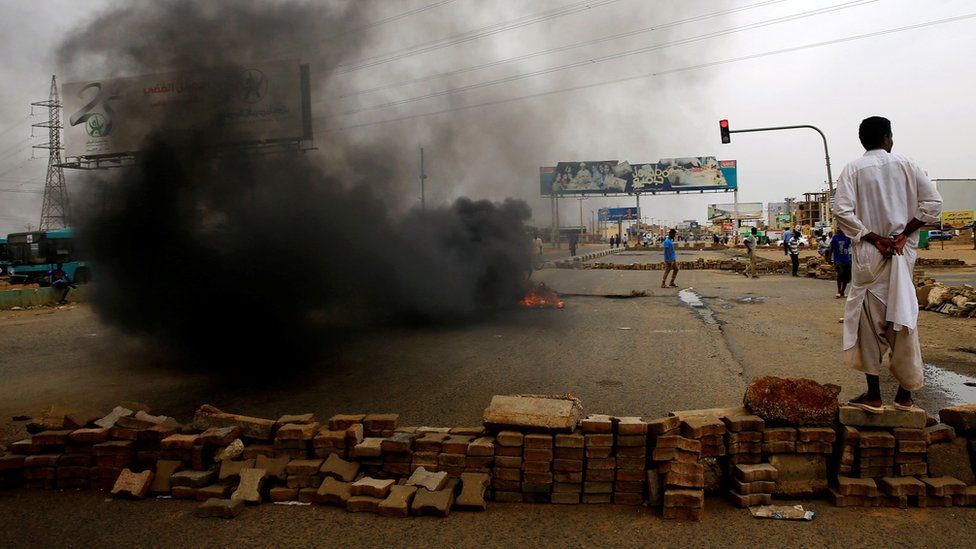
Sudan: Situation in Blue Nile ‘Going from Bad to Worse’ The humanitarian situation in Sudan’s Blue Nile state continues to deteriorate alarmingly, with “catastrophic” levels of food insecurity and widespread displacement, according to a new report by the UN Office for the Coordination of Humanitarian Affairs (OCHA). Food Crisis OCHA estimates that over 960,000 people in Blue Nile are facing severe food insecurity, including 169,000 people who are facing the highest level of food insecurity, known as “catastrophe.” This is significantly higher than the estimated 518,000 people in the state who were facing severe food insecurity in September 2022. The report attributes the worsening food crisis to a combination of factors, including conflict-induced displacement, poor rainfall, and rising food prices. The state has also been hit by a severe outbreak of pests, which has destroyed crops and livestock. Displacement The report also highlights the growing displacement crisis in Blue Nile. Over 138,000 people have been displaced within the state due to conflict and violence, with many living in overcrowded and unsanitary camps. The majority of those displaced are women and children, who are particularly vulnerable to disease and malnutrition. The lack of access to basic services and food has added to their suffering. Humanitarian Response OCHA warns that the humanitarian response in Blue Nile is “severely underfunded.” Only 23% of the required funding has been received so far, leaving aid agencies struggling to meet the overwhelming needs. The report calls for urgent action to scale up the humanitarian response and prevent a further deterioration of the situation. This includes providing food aid, shelter, healthcare, and protection services to those in need. Call for Peace OCHA also emphasizes the importance of finding a peaceful resolution to the conflict in Blue Nile. “The only sustainable way to address the humanitarian crisis is to end the violence and create a durable peace,” the report states. The UN and other international organizations are calling on the parties to the conflict to lay down their arms and engage in dialogue. They also urge the international community to support peace efforts and provide the necessary funding for humanitarian assistance.In Ed Damazin, the capital of Sudan’s Blue Nile state, an influx of displaced people from Sennar is intensifying as Rapid Support Forces advance. The rainy season has obstructed goods transportation and communication, causing hardships for residents.In Ed Damazin, the capital of Sudan’s Blue Nile state, an influx of displaced people from Sennar is intensifying as Rapid Support Forces advance. The rainy season has obstructed goods transportation and communication, causing hardships for residents. Activist Nader Minallah reports the state’s isolation due to the siege from the south and the RSF’s incursion from the north. This has resulted in skyrocketing prices and shortages in markets, as goods cannot reach the region due to the limited access route, the national highway. Nader highlights the deterioration of the situation, with communication networks down for 12 days, hindering banking transactions and causing panic. The only available communication option is the expensive Starlink satellite internet. The humanitarian crisis is worsening as the UN World Food Programme expresses concerns that fighting could cut off aid routes from Port Sudan.
The situation in Sudan’s Blue Nile state is “going from bad to worse,” with ongoing violence and displacement, aid agencies have warned. Clashes between government forces and rebels have intensified in recent weeks, forcing tens of thousands of people to flee their homes. Aid agencies say they are struggling to reach those in need, as insecurity makes it difficult to operate. “The situation in Blue Nile is rapidly deteriorating,” said a spokesperson for the UN’s Office for the Coordination of Humanitarian Affairs (OCHA). “Violence is escalating and people are being forced to flee their homes.” OCHA estimates that there are now more than 100,000 people displaced in Blue Nile, with many living in overcrowded camps with limited access to food, water and shelter. “The humanitarian situation is dire,” said the spokesperson. “People are in urgent need of assistance, but insecurity is making it very difficult to reach them.” The violence in Blue Nile is part of a wider conflict in Sudan that has been ongoing for decades. The conflict has pitted the government against rebel groups in the country’s peripheries, who are demanding greater autonomy and resources. The conflict has had a devastating impact on Sudan, killing hundreds of thousands of people and displacing millions more. The international community has repeatedly called for a ceasefire and a political solution to the conflict. However, peace talks have so far failed to make any progress.
Sudan: Situation in Blue Nile ‘Going from Bad to Worse’
Related Posts
Kate Hudson Recreated Her Iconic How to Lose a Guy in 10 Days Scene During the World Series, and I Can’t Ignore the Fans’ Reaction to It
Kate Hudson isn’t just an award-winning one actress with famous parents; she is also a huge baseball fan. So it’s no surprise that she attended this year’s World Series to…
Software Catalog Unveils Array of Cutting-Edge Solutions for Enterprise Transformation
Software Catalog Unveils Array of Cutting-Edge Solutions for Enterprise TransformationSoftware Catalog Unveils Array of Cutting-Edge Solutions for Enterprise Transformation Technology is rapidly reshaping the business landscape, making it imperative for…